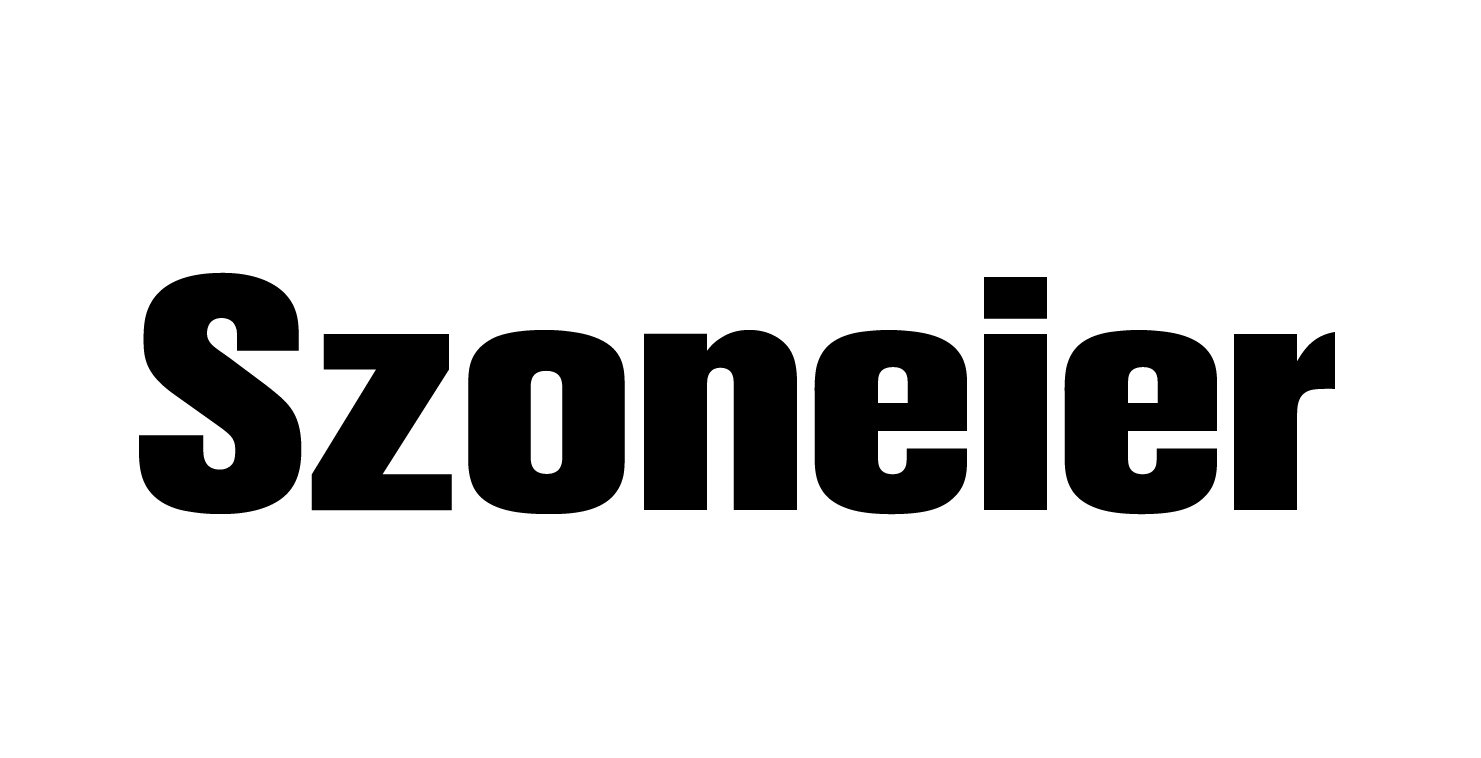
Recycling denim isn’t just a trend—it’s a fast-growing necessity in sustainable fashion. As brands commit to reducing textile waste, recycled jeans materials have become the heartbeat of eco-conscious sourcing. Choosing recycled denim shows consumers you’re serious about sustainability, not just marketing. Recycled denim comes from pre- or post-consumer waste, processed through mechanical or chemical methods. Leading suppliers offer GRS- or OEKO-TEX-certified fabrics that match conventional denim in performance while slashing environmental footprint.
Take the example of a Scandinavian brand that launched a recycled-jeans capsule collection in 2024—they cut water usage by 80% and sold out within weeks, proving recycled denim can sell just as well as new. Stick around to see how sourcing recycled jeans can transform both your brand and the planet.
What Is Recycled Denim Fabric and How Is It Produced?
Recycled denim is textile repurposed from either pre-consumer waste (cut-offs or defective rolls) or post-consumer jeans. These materials are then crushed, spun, and re-woven—sometimes combined with virgin fibers—to create new denim fabric. Recycled denim is sourced from post- or pre-consumer cotton waste, then mechanically or chemically reprocessed into yarns to produce new fabric that saves up to 70% water and 60% energy compared to virgin denim.
Understanding Recycled Denim Production
1. Pre-Consumer vs Post-Consumer Recycling
- Pre-consumer waste comes from factory offcuts and raw fabric rejects.
- Post-consumer recycling uses returned or discarded jeans, often mechanically shredded.
2. Processing Techniques
- Mechanical recycling grinds fabrics into fiber, reducing length—often blended with virgin cotton (20–30% recycled).
- Chemical recycling dissolves treated cotton, reconstructs fibers, enabling 100% recycled yarns.
3. Recycled Yarn Production
- Fiber blends (e.g., 30 recycled/70 virgin) maintain tensile strength and softness.
- Higher recycled ratios (60–100%) require advanced spinning, anti-slip coatings, and resin finishing.
Why Should Fashion Brands Choose Recycled Jeans Material?
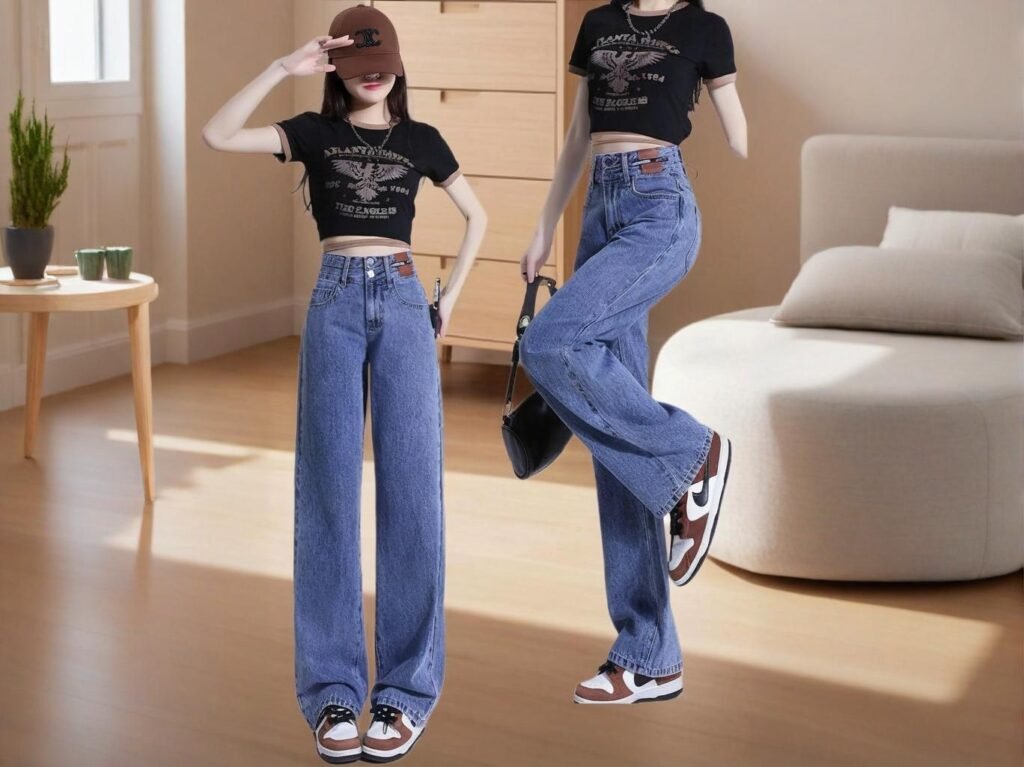
Using recycled jeans material helps brands meet sustainability goals, reduce environmental footprint, and tap into growing consumer demand—all while maintaining quality and style. Brands choose recycled denim for its reduced resource usage (water/energy), strong ESG credentials, tax credits in some regions, and growing consumer demand for verified sustainable apparel.
Benefits for Brands
1. Environmental Impact
- Recycled denim saves \~70% water and \~60% CO₂ emissions compared to new cotton.
- Reduces landfill and supports circular fashion goals (Ellen MacArthur Foundation).
2. Regulatory & Tax Advantages
- EU’s Extended Producer Responsibility and US state-level incentives reward recycled materials.
- Italian “Green Contribution” gives rebates for ecological yarns over 50% recycled.
3. Consumer Appeal
- 68% of Gen Z prefer sustainable products (McKinsey).
- Brands that spotlight recycled fabrics see 20–30% higher engagement and loyalty.
4. Cost-Stability
- Recycled cotton avoids cotton price volatility, offers predictable costing—ideal for budgeting.
Which Certifications Matter for Recycled Denim Suppliers (GRS, OEKO‑TEX)?
Certifications are the backbone of trust in recycled denim. Suppliers that carry Global Recycled Standard (GRS), OEKO‑TEX Standard 100, Bluesign, or REACH verification give B2B buyers confidence, especially in regulated markets like the EU and North America. GRS ensures traceability and minimum 50% recycled content, OEKO‑TEX confirms chemical safety, Bluesign focuses on resource use efficiency, and REACH certifies compliance with EU chemical regulations—all vital for recycled denim sourcing.
Certification Breakdown
1. Global Recycled Standard (GRS)
- Requires minimum 50% recycled fibers, full chain traceability, and social compliance.
- Third-party audited; critical for recycled content claims on labels and packaging.
2. OEKO‑TEX Standard 100
- Tests for harmful chemicals—especially relevant for comfort against skin.
- Ensures recycled yarns haven’t introduced toxins from previous cycles.
3. Bluesign System
- Gatekeeper for safe chemical use and wastewater management.
- Grants access to brands and retailers with strict environmental policies.
4. REACH Compliance (EU)
- Essential for exporting to the EU, ensuring no banned substances are present.
- Recycled materials may carry legacy chemicals—REACH addresses that risk.
5. GOTS (for Organic + Recycled)
- Certifications combining organic fiber and recycled content make powerful brand stories.
- Complex to execute, but highly valued by eco-centric consumers.
How Do Top Suppliers Ensure Quality in Recycled Denim Fabric?
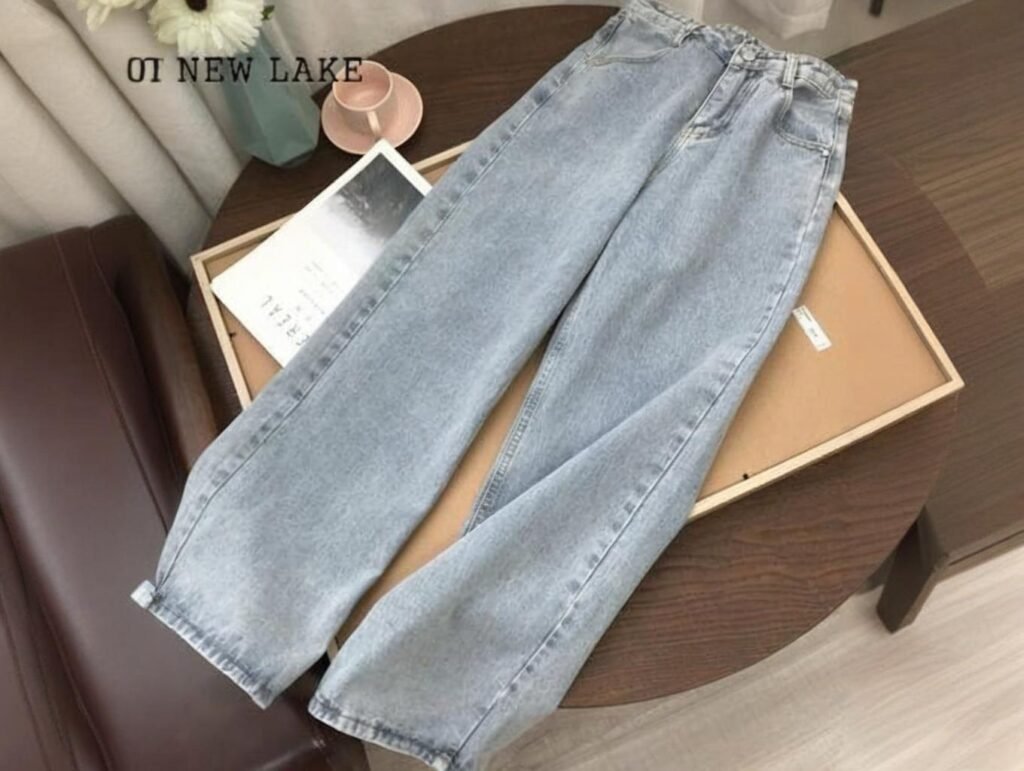
Recycling denim introduces challenges—fiber strength, color variation, and yarn uniformity. Top suppliers mitigate these through process control, blending strategies, and rigorous testing. Quality in recycled denim is achieved via controlled fiber blends (virgin/recycled), adjusted spinning/post-processing, and lab testing for strength, color consistency, and durability—ensuring recycled fabrics meet conventional denim standards.
Quality Control in Recycled Denim
1. Fiber Blend Optimization
- Common blends range 30–60% recycled fiber with virgin cotton to retain durability.
- High recycled percentages (70%+) require advanced spinning and texturizing techniques.
2. Yarn & Fabric Testing
- Regular yarn tensile strength tests and fabric tensile/tear strength ensure wearability.
- Colorfastness to wash and rub must meet ISO and ASTM standards.
3. Consistent Color Reproduction
- Color variation is managed by blending dyed white and indigo-dyed scraps.
- Suppliers rely on spectrophotometric ΔE testing to keep batch variation within ±2.
4. Finishing Enhancements
- Resins or enzymes adjust handfeel and reduce fluff from shoddy fibers.
- Sanforization and pre-shrinking prevent post-production shrinkage.
5. Compliance Checks
- Every batch must meet OEKO‑TEX, REACH, and GRS traceability for sustainable integrity.
What Are the Main Types of Recycled Denim (Post-Consumer vs Pre-Consumer)?
Recycled denim comes primarily from two sources: post-consumer waste (old jeans and garments) and pre-consumer waste (factory leftovers and offcuts). Each type has unique properties and implications for sustainability, cost, and fiber quality. Post-consumer recycled denim is made from used garments and supports circularity, while pre-consumer recycled denim comes from factory waste and offers more uniform quality. Both play vital roles in sustainable sourcing strategies.
Comparing Post-Consumer and Pre-Consumer Recycled Denim
| Feature | Post-Consumer Recycled Denim | Pre-Consumer Recycled Denim |
|---|---|---|
| Source | Used garments, consumer returns | Fabric offcuts, yarn leftovers |
| Circular Economy Impact | High – reduces landfill & promotes reuse | Medium – diverts industrial waste |
| Fiber Quality | Shorter, less consistent | Longer, more uniform |
| Color Variability | High | Low |
| Common Uses | Fashion-forward, upcycled collections | High-volume production |
| Processing Difficulty | More sorting, cleaning needed | Easier to process |
| Example Brands | Levi’s Wellthread, Nudie Jeans | Cone Denim’s Recycled Blue series |
Real Case: Nudie Jeans (Sweden)
They collect worn-out jeans in-store, shred them into fibers, and spin new fabrics—achieving over 20% post-consumer content in some lines. It’s more resource-intensive but deeply resonant with eco-conscious consumers.
Real Case: ISKO Earth Fit™
This Turkish mill uses pre-consumer scraps and proprietary clean technologies to spin recycled yarns that are consistent in strength and shade. Ideal for brands needing scalable volume with stable specs.
Who Are the Leading Global Suppliers of Recycled Jeans Material?
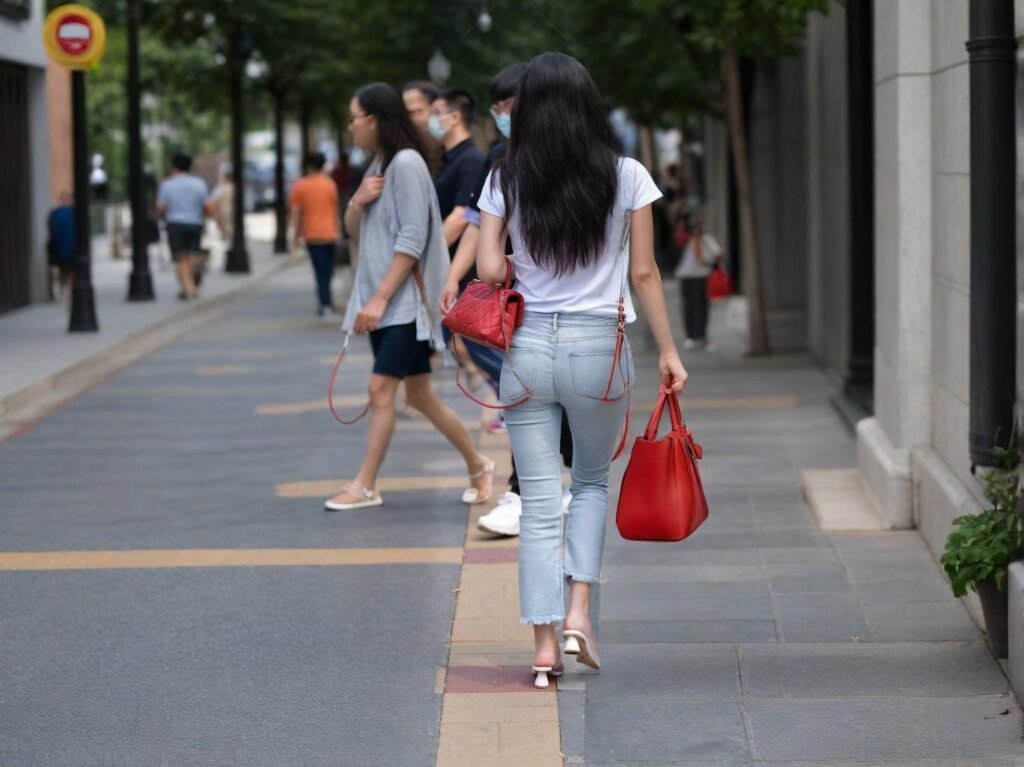
B2B buyers seeking sustainable denim need partners that can ensure certified quality, flexible MOQs, and global delivery. The following suppliers are industry leaders in recycled denim. Leading recycled denim suppliers include Saitex (Vietnam), Candiani (Italy), Bossa (Turkey), Cone Denim (USA), and SzoneierFabrics (China). They offer GRS-certified fabrics and scalable production for eco-conscious brands.
8 Top Recycled Denim Suppliers for B2B Orders
| Supplier | Country | Certification | MOQ (yards) | Notable Products |
|---|---|---|---|---|
| Saitex | Vietnam | GRS, LEED | 500 | Recycled cotton blends, circular denim |
| Candiani Denim | Italy | GRS, OEKO-TEX | 300 | Coreva stretch, recycled selvedge denim |
| Bossa | Turkey | GRS, Bluesign | 1000 | Pre-consumer recycled blends, flexible specs |
| Cone Denim | USA/Mexico | GRS | 1000 | REPREVE®, pre-consumer recycled yarns |
| SzoneierFabrics | China | GRS, OEKO-TEX | 300 | Customizable GSM, dye, stretch in recycled |
| Prosperity Textiles | China/Vietnam | GRS, ISO14001 | 800 | Recycled blends, laser-wash friendly |
| Isko | Turkey | GRS, SA8000 | 500 | Earth Fit™, used in H\&M Conscious line |
| Vicunha | Brazil | GRS, OEKO-TEX | 1000 | Post-consumer and pre-consumer hybrid fabrics |
SzoneierFabrics provides flexible MOQs, fast sampling, and customization of GSM, weave patterns, and dye recipes—making it ideal for private label and mid-size fashion brands transitioning to recycled textiles.
How to Choose the Right Supplier Based on MOQ, Lead Time, and Certifications?
Selecting the right recycled denim supplier involves balancing minimum order quantities (MOQs), production lead times, and third-party certifications. Each factor impacts budget, speed to market, and your brand’s sustainability credibility. Choose a recycled denim supplier based on MOQ flexibility, production lead time, and sustainability certifications like GRS or OEKO-TEX. These affect cost-efficiency, delivery timelines, and brand compliance.
Key Factors for Evaluating Recycled Denim Suppliers
1. MOQ Flexibility for Startups vs. Established Brands
| Supplier | MOQ (yards) | Suitable For |
|---|---|---|
| SzoneierFabrics | 300 | Startups, DTC, SMEs |
| Candiani Denim | 300 | Luxury brands, capsule lines |
| Cone Denim | 1000 | Mass-market, wholesale |
2. Lead Time Considerations
- Fast Sampling (7–10 days): SzoneierFabrics, Saitex
- Bulk Lead Time (2–6 weeks): Cone Denim, Prosperity Textiles
- Seasonal Delays (8–10 weeks): Vicunha, Bossa
3. Certification Matrix
| Supplier | GRS | OEKO-TEX | SA8000 | Bluesign | ISO 14001 |
|---|---|---|---|---|---|
| SzoneierFabrics | ✅ | ✅ | ❌ | ❌ | ✅ |
| Candiani | ✅ | ✅ | ❌ | ✅ | ✅ |
| Isko | ✅ | ✅ | ✅ | ✅ | ✅ |
For brands targeting the EU or North America, GRS (Global Recycle Standard) certification is becoming a must-have for customs clearance and ESG compliance.
What Are the Future Opportunities and Challenges in the Recycled Denim Market?
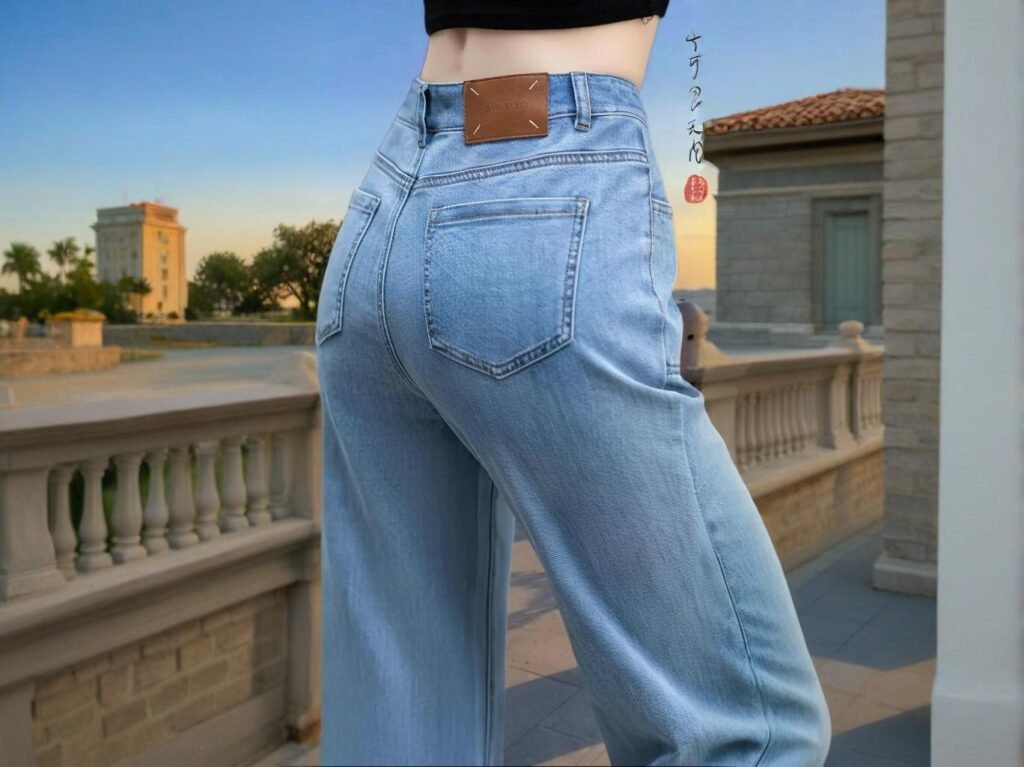
As demand for eco-conscious fashion rises, recycled denim is projected to grow at a CAGR of 8.1% through 2030. However, infrastructure gaps, inconsistent fiber quality, and greenwashing remain challenges. Opportunities in recycled denim include rising B2B demand, ESG compliance, and automation. Challenges involve supply chain inconsistencies, certification bottlenecks, and cost control.
5 Key Market Trends to Watch
1. Growth in EU and North American B2B Orders
- Retailers like Zara and Levi’s are increasing orders for recycled blends.
- EU Green Deal initiatives will mandate circularity reporting by 2026.
2. Technology-Led Differentiation
- Blockchain traceability: Applied by suppliers like Cone Denim.
- Laser & ozone finishing: Reduces water and chemical usage in processing.
3. Supply Chain Bottlenecks
- Limited availability of post-consumer feedstock.
- Certification delays due to audit backlogs.
4. Cost-Performance Balance
- Recycled denim often has 10–15% higher raw material costs.
- But long-term ROI improves via brand trust and regulatory readiness.
5. Brand Case Study: Mud Jeans (Netherlands)
They use 40% post-consumer denim and lease their jeans, promoting product take-back for true circularity. Their growth in B2B collaborations proves that smaller brands can lead in sustainability narratives.
Recycled jeans material is no longer a niche option—it’s a strategic necessity. Whether you’re a boutique designer or a global fashion brand, sourcing from certified, reliable suppliers ensures your product meets growing eco-demands while supporting global sustainability goals.
SzoneierFabrics offers tailor-made recycled denim fabric solutions backed by:
- GRS certification
- MOQ starting at just 300 yards
- Customizable GSM, dyeing, and blends
- Free sampling and fast delivery
